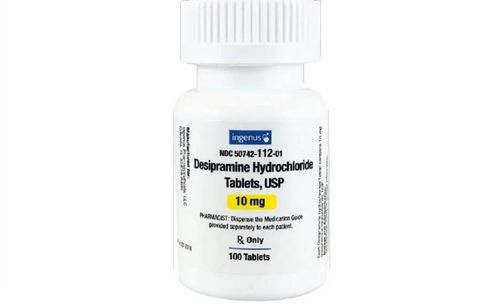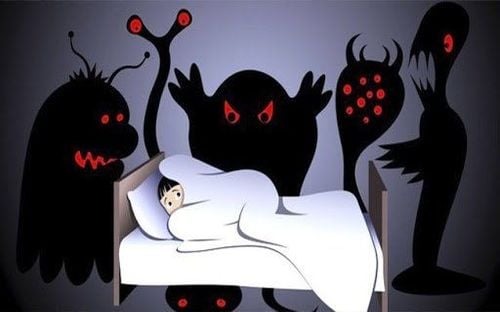This is an automatically translated article.
Exercise is not only an effective way to prevent health conditions such as heart disease, high blood pressure and diabetes, it can also help improve symptoms of depression or anxiety. However, before undertaking any exercise program, you should also consult with your doctor or specialist to make sure it is safe and appropriate for your health.1. Exercise helps relieve symptoms of depression and anxiety
Exercise has long been seen as a great way to prevent and improve a wide range of health problems, including high blood pressure, diabetes, heart disease and arthritis. Several recent studies have shown that regular exercise offers psychological as well as physical benefits for people with symptoms of anxiety and depression.Although the link between depression, anxiety and exercise isn't entirely clear, experts say exercise and other forms of physical activity can certainly Helps relieve symptoms of depression or anxiety, which in turn makes you feel better. In addition, exercise also helps prevent depression and anxiety from returning after treatment.
Overall, regular exercise can reduce depression and anxiety in the following ways:
Release of endorphins: Exercise is good for your emotions because it can stimulate the release of endorphins - a chemical natural brain chemicals, similar to cannabis (endogenous cannabinoids), and other natural brain chemicals, that enhance your sense of well-being. Get rid of worries in your mind: This can help you break out of the cycle of negative thoughts that feed anxiety and depression. Regular exercise also has many psychological and emotional benefits, which can help you:
Gain confidence: When fitness goals are met (even small challenges) can also increase your confidence. In addition, exercise also helps you maintain a fit body and makes you feel more satisfied with your appearance. Get more social interaction: Exercise and other physical activities give you the opportunity to meet or socialize with other people. Just exchanging a friendly smile or greeting while walking around your neighborhood can have many positive benefits for your mood. Coping with depression and anxiety in a healthy way: Exercise is considered a healthy coping strategy to effectively manage depression and anxiety. Trying to relieve your emotions by drinking alcohol, monitoring how you feel, or hoping symptoms of anxiety and depression will go away on their own can make your condition worse.

Tập thể dục được đánh giá là có ích đối với người bị trầm cảm
2. Are exercises the only option?
Some research shows that physical activity like regular walking, not just a formal exercise program, can help improve mood. Physical activity and exercise aren't exactly the same thing, but both have many benefits for your overall health.In fact, physical activity is any activity that requires muscle and energy, including housework or leisure. On the other hand, exercise is a planned, structured and repeated body movement to improve or maintain physical fitness.
Exercise includes a series of exercises that increase the activity level of the body to your comfort. Exercises such as jogging, playing basketball, lifting weights and some other physical activities help the heart pump blood better. However, you can also do some other physical activity like gardening, walking around the house or washing the car to improve your mood and alleviate symptoms of anxiety and depression.
You don't have to do exercise or other physical activity all at once, instead find ways to add physical activity to your daily life, such as taking the stairs instead of the elevator. Or if you live close to your workplace, consider cycling to work.
3. How much exercise is enough?
Health care professionals suggest that exercising for 30 minutes or more every day and doing it for 3 to 5 days a week can significantly improve symptoms of depression and anxiety. Even physical activity of just 10 to 15 minutes at a time can make a positive difference to your mood as well as your health.You can save more time for emotional fitness through more vigorous activities, such as biking or jogging. The mental health benefits of exercise and physical activity can only be achieved if you stick with them and maintain them for the long term. To do this, you can do the activities you love to
4. How to start and stay motivated to exercise?
Starting and sticking to a regular exercise or physical activity routine can be challenging. Here are some strategies to make it easier to get started and stay motivated, including:Identify physical activity that you enjoy: You should figure out what kind of physical activity you do. most likely to perform and is it suitable for my time? Seek help from a mental health professional: If you suffer from depression and anxiety, talk to your doctor for guidance and support about an exercise program or physical activity routine. fit into your overall treatment plan. Set reasonable exercise goals: To ease or improve symptoms of depression and anxiety, you don't have to exercise for 1 hour a day/week. Instead, you need to think realistically about what activities you can do and start doing them slowly. Tailor your workout plan to your needs and abilities rather than setting unrealistic and hard-to-meet guidelines. Treat exercise or physical activity as therapy: People with symptoms of depression and anxiety shouldn't see exercise as another must-do in life, see here instead therapy sessions or the use of drugs, turning them into a way to make the body healthier. Find obstacles or barriers to your exercise: If your exercise training is being limited or hindered by some reason, you should try to find the specific reason and fix it. restore them by alternative means. Prepare yourself for setbacks and setbacks when exercising: You should acknowledge and motivate yourself after each exercise. If you skip exercise for a day, that doesn't mean you can't maintain a workout routine and have to give up. Just try again the next day and aim to stick with them for the long term.

Việc đặt mục tiêu hợp lý có thể giúp bạn duy trì động lực tập thể dục
If you exercise regularly but symptoms of depression and anxiety still interfere with your daily life, see your doctor or mental health professional as soon as possible. While exercise and physical activity are great ways to relieve symptoms of depression or anxiety, they are not a substitute for psychotherapy or other medications.
Psychological Clinic - Times City International General Hospital is one of the leading prestigious addresses in the treatment of psychological and mental health problems. The medical team at the clinic are highly specialized, many of whom are lecturers in psychiatry at Hanoi Medical University, capable of implementing psychological tests, in-depth psychotherapy, and providing support. effective aid in the treatment of diseases.
Please dial HOTLINE for more information or register for an appointment HERE. Download MyVinmec app to make appointments faster and to manage your bookings easily.
Reference source: mayoclinic.org












